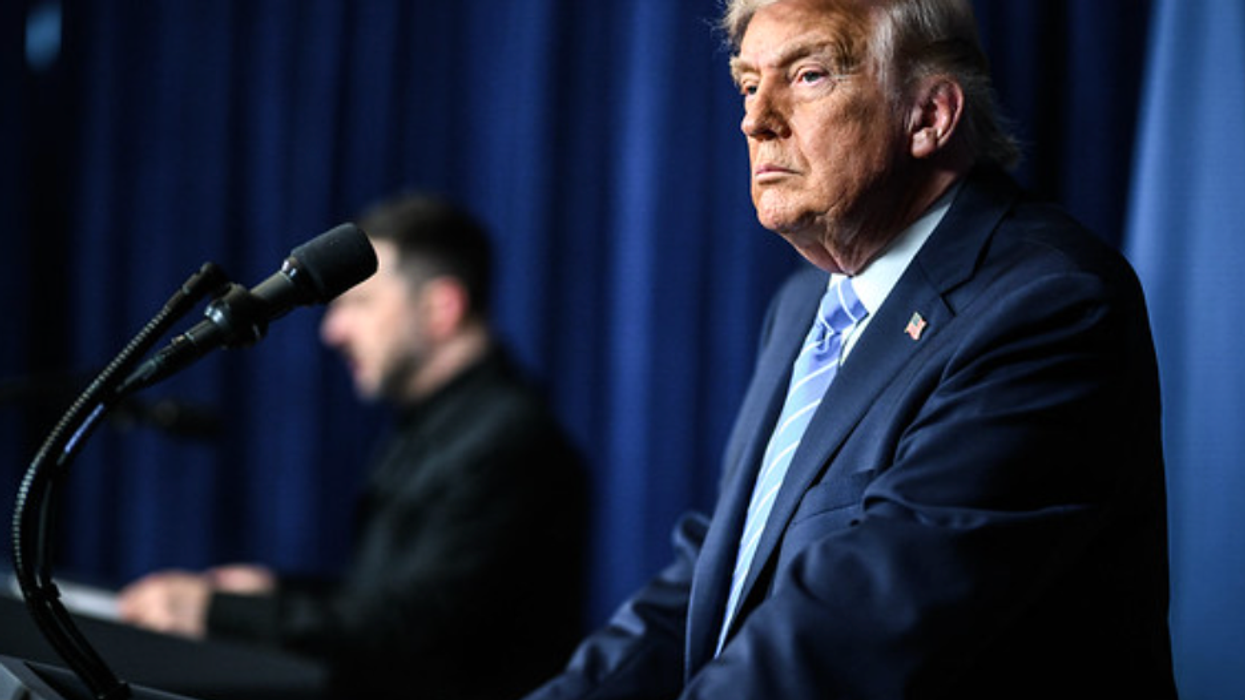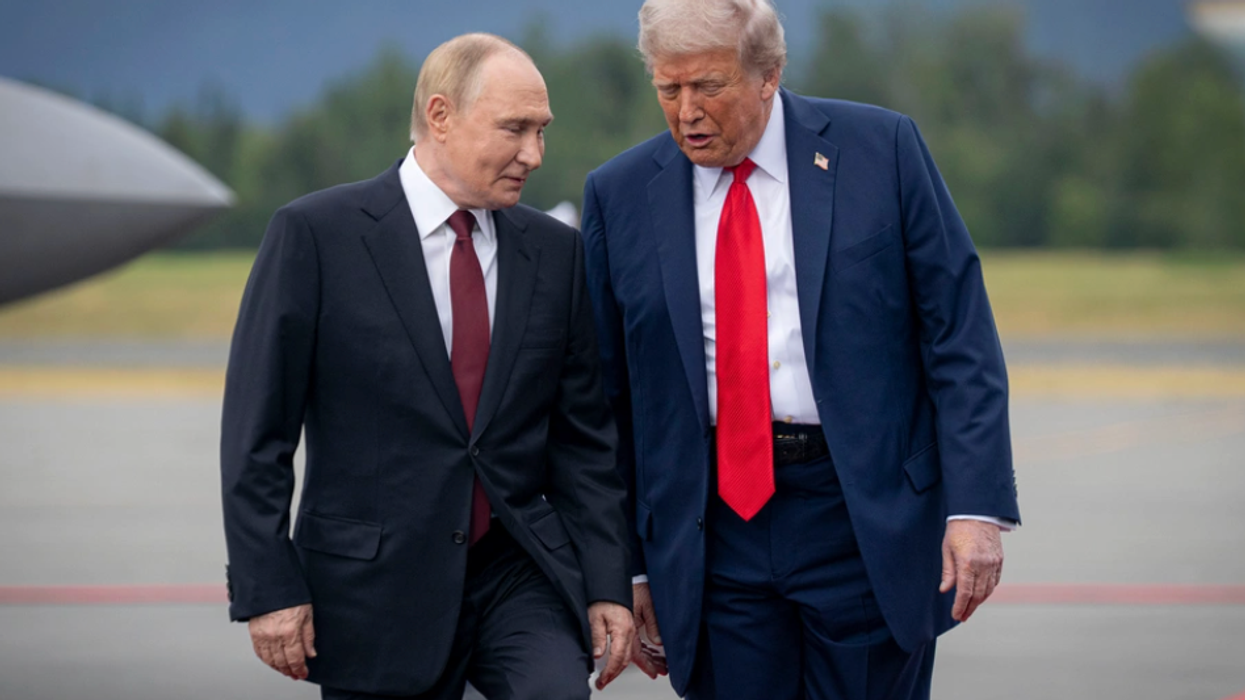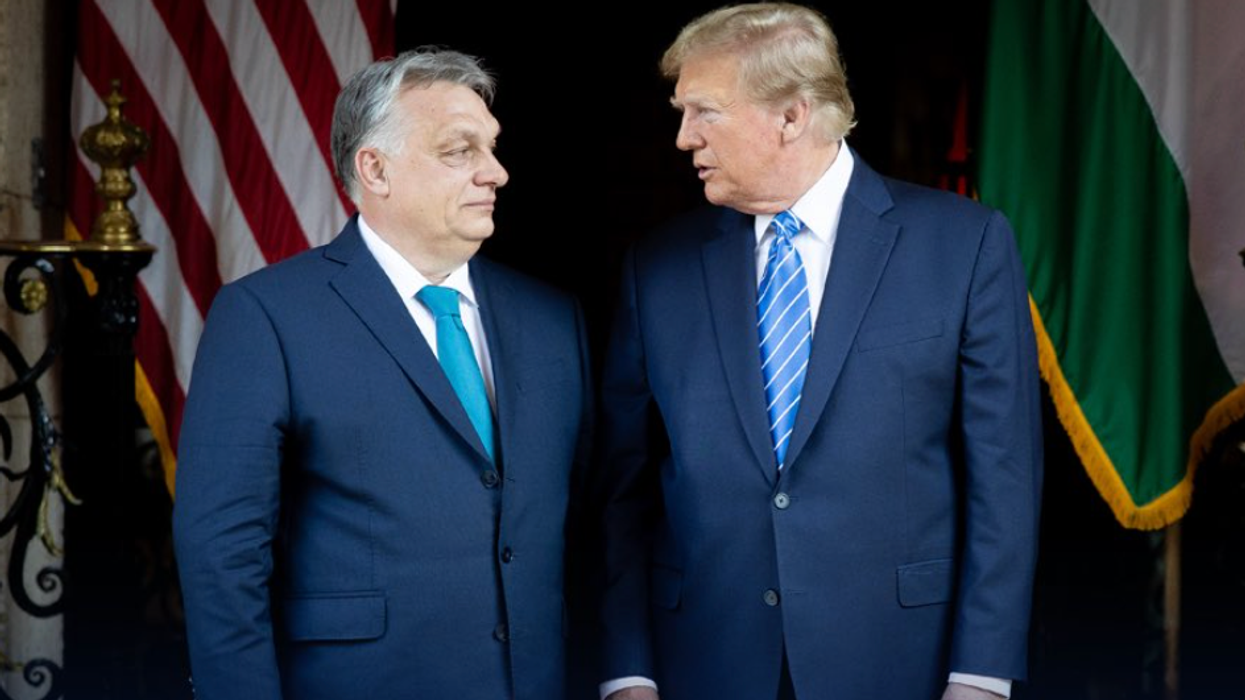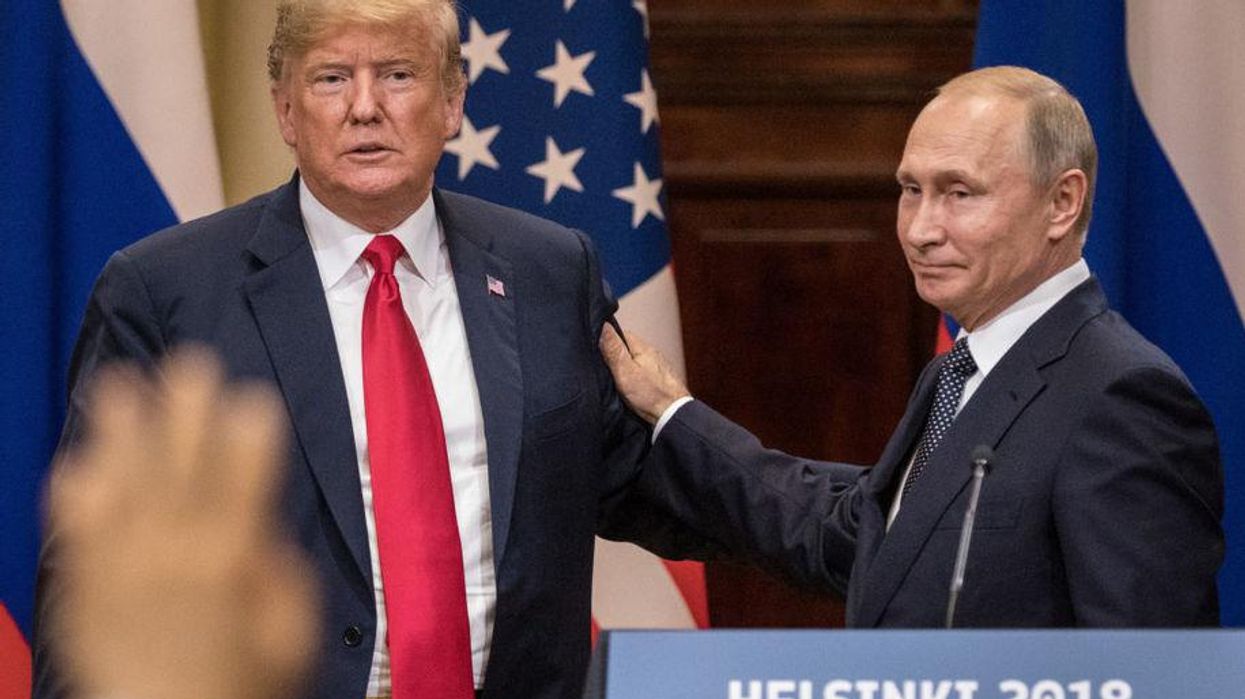Worse Than Fascist: What Is The Word That Describes Trump's Conduct?
When observers ask whether Donald Trump is mad, assert that he must have had a stroke, or insist that he suffers from dementia, they are merely struggling to make sense of his senseless acts. To watch the president of the United States doing things every day that appear to be incomprehensible or even insane is so troubling that everyone — except his MAGA cult members — searches frantically for answers.
The experts who conclude from Trump's remarks and appearance that he is a stroke victim make at least one convincing argument. As the first year of his second term ends, he does seem fully unmoored from the few mental and moral constraints that once held him back. He doesn't seem to care that his approval ratings — and the prospects for Republicans in the coming midterm elections — are swirling round the pollster toilet.
Certainly the president's reckless conduct on every front indicates a disturbing lack of concern for consequences. What did he think would happen when he embarked on a campaign of aggression against Greenland, territory of Denmark, a faithful ally? He knows, of course, that he is endangering the NATO alliance that has bolstered the West against its adversaries for the past seven decades, and yet he doesn't seem to care. In fact, the idea of wrecking NATO fills him with a manic energy that could only be matched by the excitement of his old pal Vladimir Putin.
Surely he must realize that his bizarre intervention in Venezuela, where none of his rationalizations can withstand the slightest scrutiny, would infuriate our neighbors and astonish the rest of the world, while angering his own MAGA isolationists. The Venezuelan dictatorship has nothing to do with our narcotics scourge, the oil there never really belonged to the United States, and the government there is just as corrupt as when Nicolas Maduro ruled. Aside from the boost to Trump's ego, the Maduro misadventure has only created headaches for the Justice Department and damaged American relationships with all our allies in this hemisphere — which Trump had already done much to ruin with his political offensives against Canada and Mexico.
We know there is one head of state who is enjoying the Venezuelan mess. That would be Putin, again, who encouraged Trump's idiotic "Donroe Doctrine" as an endorsement of his own domination of Eastern Europe (and perhaps all of Europe).
And does anyone imagine that Trump by now doesn't understand why his crusade against Federal Reserve Chairman Jerome Powell undermines our economy, as well as the dollar's precious standing as a reserve currency and the confidence of international lenders who underwrite our debt? Even a few of the financial leaders who brown-nosed him with such revolting self-abasement now protest his banana-republic threats to prosecute Powell. But he hasn't veered from this destructive course and evidently will only be satisfied when he finishes destroying the dollar's value.
This catalog of his most recent ruinous actions continues, on varying levels, the long list of things he has done to undermine American strength and security from the moment he returned to office. He took a sledgehammer to the rule of law — which truly makes our country great — when he pardoned the January 6 defendants, including the would-be cop-killers and neo-Nazis among them. He persistently sabotages our valiant allies in Ukraine, encouraging worse acts of aggression by their Russian invader. And he has put incompetent clowns in charge of all our intelligence agencies — including the FBI, whose counterintelligence division defends us against foreign adversaries.
Perhaps none of those decisions makes sense unless he has lost his mind. But there is an even darker possibility.
Trump rarely hesitates to accuse his critics of "treason," including even once-ardent MAGA sycophants like former Rep. Marjorie "Traitor" Green. The draft dodger approvingly cited calls for the execution of top military officers, who have served honorably for decades, simply for dissenting. "Traitor" is one of his favorite insults.
Yet strangely, almost every one of his social media posts, every policy maneuver, and every appointment emanating from the Oval Office he occupies have damaged the prospects and prestige of the United States while advancing the objectives of our foes. When the president of the United States consistently behaves in ways that promote the interests of a hostile foreign power, how should we describe him?
Joe Conason is founder and editor-in-chief of The National Memo. He is also editor-at-large of Type Investigations, a nonprofit investigative reporting organization formerly known as The Investigative Fund. His latest book is The Longest Con: How Grifters, Swindlers and Frauds Hijacked American Conservatism (St. Martin's Press, 2024).
Reprinted with permission from Creators












